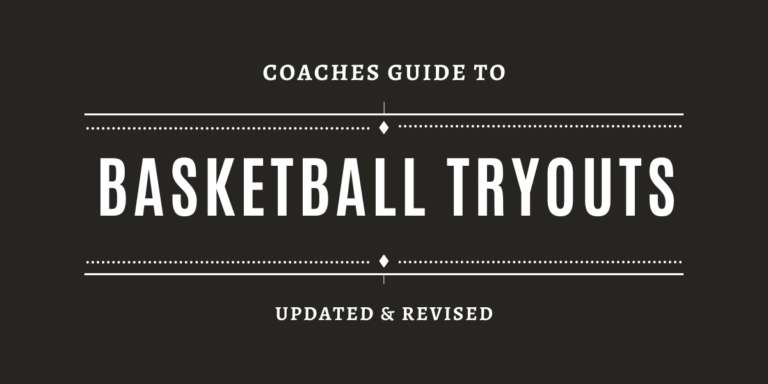10 Half-Truths Every Basketball Coach Should Know About
As a basketball coach, there are half-truths that others believe about coaches and in some cases, a coach starts to believe about themself. Since these half-truths can be viewed as “the truth” it is important for a coach to recognize these thoughts exist. The half-truths in the list below are not in a specific order nor is this an exhaustive list. The 10 half-truths every basketball coach should know about is a list to use for self-reflection and to better prepare a coach for any issues that may arise from a half-truth.
Half-Truth #1: It’s Not About Winning
Quality coaches know that coaching is more than just getting the win. At the same time, coaches are competitors and they want to win. There is a balance that is struck between helping young people grow and mature while still recognizing both the coach and the players have a competitive fire that propels them to work hard and get the win.
Half-Truth #2: A Coach Doesn’t Play Favorites
It’s widely known that coaches have favorites even if they say they don’t. A coach’s favorite players are the ones who are efficient on offense and tenacious on defense while showing support for teammates on the bench and in the locker room. The best teams are full of a coach’s favorite players.
Half-Truth #3: Coaches Only Coach For The Money
Unless you’re coaching major college basketball or in the NBA most coaches aren’t on the sidelines for the money. This isn’t to say that coaches don’t appreciate being paid. At the high school level (and below) most coaches are teachers or work within the school or community with kids. (I know there are some who don’t.) These coaches walk the sidelines because they love to coach first and foremost. The paycheck is appreciated but isn’t the driving force behind why coaches coach.
Half-Truth #4: Deciding Playing Time Is Easy
Even when a coach has a team full of favorite players it is never easy to know when to substitute players. Does a coach sub before players are tired or once they are thoroughly exhausted? Should a coach have a sub plan and stick to it or not? How many mistakes should a player get to make before being subbed out of the game? The list of questions goes on and on. No matter how a coach decides to substitute players they need to be confident in their decisions and know they made the best decision they could to help the team at that point in the game.
Half-Truth #5: Knowing The X’s and O’s Means You Can Coach
While knowing the X’s and O’s is certainly part of being a quality basketball coach it is only one of the five boxes a coach needs to check. If coaching was as easy as drawing up a few plays the experts in the stands wouldn’t be in the stands they would be coaching a team.
Half-Truth #6: If A Coach Is Good With Kids They Can Coach
This is truer at the lower levels, but once you get to the varsity level a coach needs to have a combination of being good with kids and knowing the game to find the most success. Coaches who are good with kids is great, but until they learn the game their success will be minimized.
Half-Truth #7: A Coach and Their Spouse Are Always On The Same Page
Coaches often say my spouse supports me 100%. This may be true that they support you coaching but this doesn’t mean both sides are always in agreement and on the same page. Coaches who know the four ways to create balance as a coach walk a little lighter and smile a bit more. The faster you learn how to balance life as a coach the more a coaches spouse can truly be supportive.
Half-Truth #8: Coaching Your Own Kid Is Easy
Every coach who has ever coached their kid, at any level, knows it’s hard. If you’re not tough on them its because they are the coaches kid. If you are too tough on them its because they are the coaches kid. For both the coach and the kid it can be lose-lose at times. The coaches who do it the best find a way to separate when they are the coach and when they are the parent.
Half-Truth #9: The Team Knows You Care About Them
“I do it for the kids.” This is what all coaches say and 99% of the time this is a true statement. Is this what your players would say though? Quality coaches show they care about the team through their actions and their words. When players truly know a coach cares about them they will play harder, listen more, and better hold each other accountable. The best way to know how a team feels about the coach is for the coach to ask them.
Half-Truth #10: Coaches Are Good Communicators
A quality coach knows that communication with their team isn’t just talking and giving rah-rah speeches before a game, it’s listening too. At times coaches can be too quick to speak and too slow to listen. If players are having a rough practice or seem to be down they sometimes just want someone to ask what’s going on and to listen. Asking questions can help during timeouts and at half-time as well. Being slow to speak and quick to listen can really enhance a coaches communication skills.







